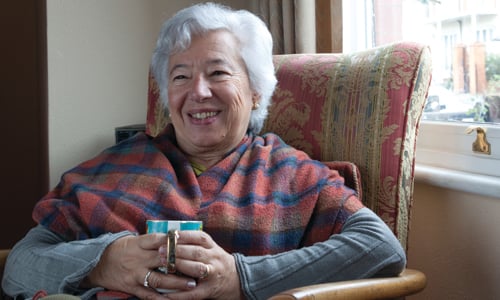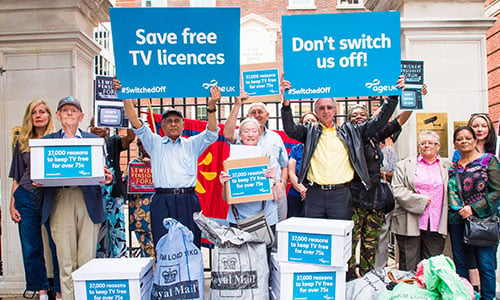Energy prices are increasing, and many suppliers are going bust. Whilst some protections are in place to support older people, this winter will still prove challenging for millions of households. Policy and Research officer David Southgate explains the causes of the crisis and the Government’s options for supporting older people to stay warm and well this winter.
What is happening to energy bills this winter?
Energy bills have been rising rapidly. The wholesale price of gas that energy suppliers purchase has more than quadrupled compared to this time last year.
Lower supply from Russia, increased demand from Asia, reduced levels of renewable energy and a fire at an EU/UK electricity connector have combined to drive up the cost. This has resulted in a larger number of energy suppliers going bust.
In response to rising prices, earlier this year, Ofgem, the energy regulator, increased the energy price cap from 1 October 2021. The cap offers some protection for customers by preventing suppliers from charging an even higher rate for energy.
Raising the price cap will impact 15 million households. The average default tariff bill will increase by £139 per year. For prepayment meter customers, the average increase will be around £153.
For more information on what older people can do to stay on top of increasing energy costs, see Age UK’s latest energy updates.
Which policy changes could help older people this winter?
Older people are more vulnerable to the impacts of living in a cold home during the winter months. A toxic cocktail of high energy prices, poor housing and ill health can make colder periods a dangerous time for many older people. The NHS is likely to face real pressures due to the impact of COVID, flu and other seasonal conditions.
The impact of rising energy bills on people’s health is likely to also increase demand for stretched services. With winter rapidly approaching, we must ensure that protections are in place to support those struggling to pay and those most impacted by the cold.
Below are the kinds of policy changes that the Government could make to help older people to manage the unprecedented increase in wholesale energy prices this winter.
- Last year, the Government implemented the Winter Grant Scheme to help support people during the pandemic. The Scheme provided money to local councils to support those struggling with their bills. Reintroducing this scheme could provide much-needed help for those that have seen their income reduce and their outgoings rise.
- The Government also levy a 5% VAT rate on household energy bills. Temporarily cutting this rate or scrapping it altogether could provide some relief. The Government should ensure that any cut to the rate is passed onto consumers and not absorbed by energy suppliers.
- The Government’s proposals for a £125m spending increase for the Warm Home Discount (WHD) from winter 2022 could also be brought forward to this year. Additional emergency funding could also be allocated to the WHD’s Industry Initiatives, which support some of the most vulnerable fuel poor households with energy advice, benefit checks, and debt relief.
- With increasing numbers of suppliers going bust, the Government could also act as a backstop for consumers. This would include acting as the guarantor for any WHD or Energy Company Obligation commitments which have been missed due to supplier failure.
- With more than 4 million people already behind on their household bills, wider debt write-off schemes could also provide much needed relief for many households.
At Age UK we are keeping a very close eye on this issue. We are talking to Government and the regulator with a view to ensuring that these decision makers have the wellbeing of older people uppermost in their minds. Longer term, we need to see greater investment in energy efficiency programmes, because this will help lower bills, reduce anxiety for those in cold homes and protect people against any future surges in fuel costs. But in the shorter term we think the Government may well have to come up with some additional cash. Watch the Age UK website for news on this as it emerges.
In the meantime, older people and their families who are concerned about the cost of their energy, or their supplier failing, can contact Age UK’s Advice Line on 0800 678 1602.
Our Winter Wrapped Up guide has tips on staying warm and well at home. Guidance on reducing your energy costs can be found in our Save Energy, Pay Less information guide and Help with Heating Costs factsheet.






